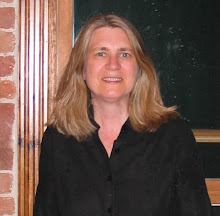 Elizabeth Gilbert in her book, Eat, Pray, Love writes about happiness. She uses the phrase, "diligent joy". Gilbert says that people universally tend to think that happiness is a stroke of luck, something that will maybe descend upon you like good weather if your fortunate enough. But, she goes on to say, that's not how happiness works. "Happiness is the consequence of personal effort. You fight for it, strive for it, insist upon it. You have to participate relentlessly in the manifestations of your own blessings. And once you've achieved a state of happiness, you must never become lax about maintaining it, you must make a mighty effort to keep swimming upward into that happiness forever, to stay afloat on top of it. If you don't, you will leak away your innate contentment."
Elizabeth Gilbert in her book, Eat, Pray, Love writes about happiness. She uses the phrase, "diligent joy". Gilbert says that people universally tend to think that happiness is a stroke of luck, something that will maybe descend upon you like good weather if your fortunate enough. But, she goes on to say, that's not how happiness works. "Happiness is the consequence of personal effort. You fight for it, strive for it, insist upon it. You have to participate relentlessly in the manifestations of your own blessings. And once you've achieved a state of happiness, you must never become lax about maintaining it, you must make a mighty effort to keep swimming upward into that happiness forever, to stay afloat on top of it. If you don't, you will leak away your innate contentment."This focus on Deli gent Joy is, not merely a self-preserving and self-benefiting act, but also a generous gift to the world. Clearing out all your misery gets you out of the way. You cease being an obstacle, not only to yourself but to anyone else. Only then are you free to serve and enjoy other people. Only then can your soul hold tight to its good attainments.






